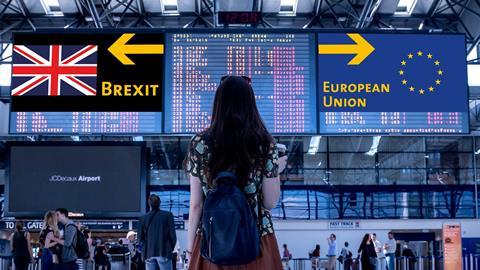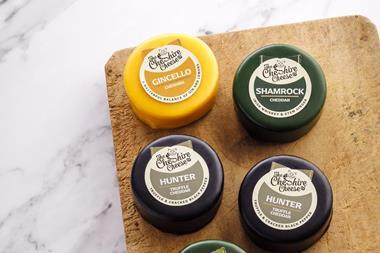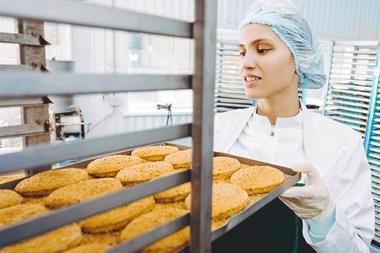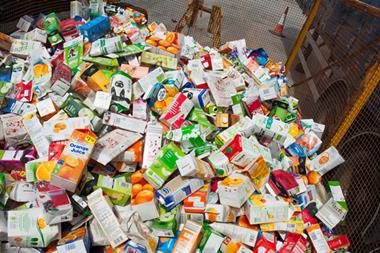Back in those pre-war, pre-Covid and pre-permacrisis halcyon days of early 2020, the world was the UK food sector’s oyster in terms of post-Brexit trading opportunities.
So exciting were those opportunities – free from the shackles of the EU – that newly-installed environment secretary George Eustice was at pains to play down the potential negative impact of new free trade deals on the UK’s food producers.
Speaking ahead of negotiations with the likes of Australia and New Zealand, Eustice urged delegates at the NFU conference in February 2020 not to “get spooked” by concerns – which continue to this day – over the government’s trade deal agenda selling the UK short.
“We have in this country some of the most efficient and innovative farmers in the world and we need to get on the pitch and compete,” he insisted. At the same time, he stressed the government would not “jeopardise” UK food standards in any future deals – a mantra he repeated on a regular basis during his time in the top job at Defra.
Given Eustice’s oft-repeated confidence that all would be well, his latest admission those deals may not have been that fantastic after all is somewhat surprising. Especially when he’s laying the blame squarely at the door of then-trade secretary Liz Truss.
Eustice, of course, was sacked by Truss during her disastrous stay at No 10. But the savage nature of his attack on his former cabinet colleague has still raised eyebrows.
Speaking in a Commons debate yesterday, Eustice admitted the Australia deal in particular was “not actually a very good deal for the UK”, and an agreement that gave away “too much”.
Without a hint of irony, Eustice revealed his newfound honesty came from sitting on the backbenches, where he “no longer has to put such a positive gloss on what was agreed”.
Truss’s often excruciating attempts to develop new overseas markets for UK food have a long and infamous history, of course. They range from her much-memed pork markets speech while Defra secretary, to recent revelations printed in The Sunday Times that portrayed her as being as equally interested in photo opportunities as forging trade deals that would actually benefit the UK.
Eustice was equally critical, telling MPs yesterday negotiators were put “on the back foot” by Truss demanding the terms of the deal were agreed before a meeting of the G7 in Cornwall on 11 June 2021.
This sorry affair illustrates much of the Johnson administration’s feverish attempts to paint Brexit in only a positive light. And Eustice – who was around the same cabinet table as Truss – is equally to blame for failing to speak up more vociferously at the time if he did indeed think these trade deals were a dog’s dinner.
His comments yesterday were brought into stark context by news that the Cheshire Cheese Company – which hit the headlines last January after being forced to halt EU exports due to additional costs and bureaucracy around post-Brexit export health certificate rules – was today acquired by fellow northwest of England cheese producer Joseph Heler.
CCC will now be able to recommence exports to the EU due to Heler’s existing operations in central Europe.
But there is a less positive side to this tale. Given we are now approaching the second anniversary of the implementation of Brexit, that it has taken a sale of the business to recommence exports to our closest trading partner speaks volumes about the government’s export priorities.
CCC’s MD Simon Spurrell today told The Grocer Boris Johnson’s much-vaunted EU trade deal had overlooked the requirement for an export health certificate on every single piece of cheese it sold on the continent – rendering its European business uneconomical overnight.
When he complained to Defra in a Zoom meeting at the time, both Eustice and then-farming minister Victoria Prentis suggested he should look to export outside of Europe instead, or even open a fulfilment business in the bloc, Spurrell says – something his business could not shoulder financially. “So we’ve left the EU and now you’re telling me to rejoin it?” he apparently responded, to which Eustice was said to have chuckled.
These types of niggly border issues continue to this day, with The Grocer reporting plant-based yoghurt manufacturer Met Foods had shipments impounded by French officials only last month.
Eustice was right the government should look again at the impact of future free trade deals on UK producers, telling MPs yesterday lessons needed to be learnt in future negotiations.
But he and the rest of his cabinet colleagues are equally culpable for the issues still faced by exporters – many of which are SMEs – on a regular basis when trying to access the EU market.
And until that situation improves, many UK food businesses will continue to struggle to fulfil their export potential.




















No comments yet